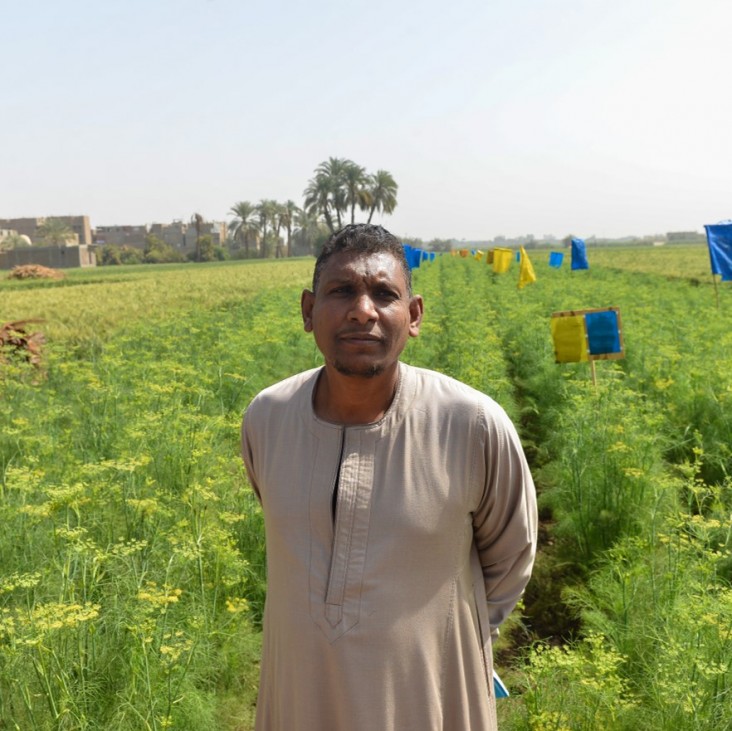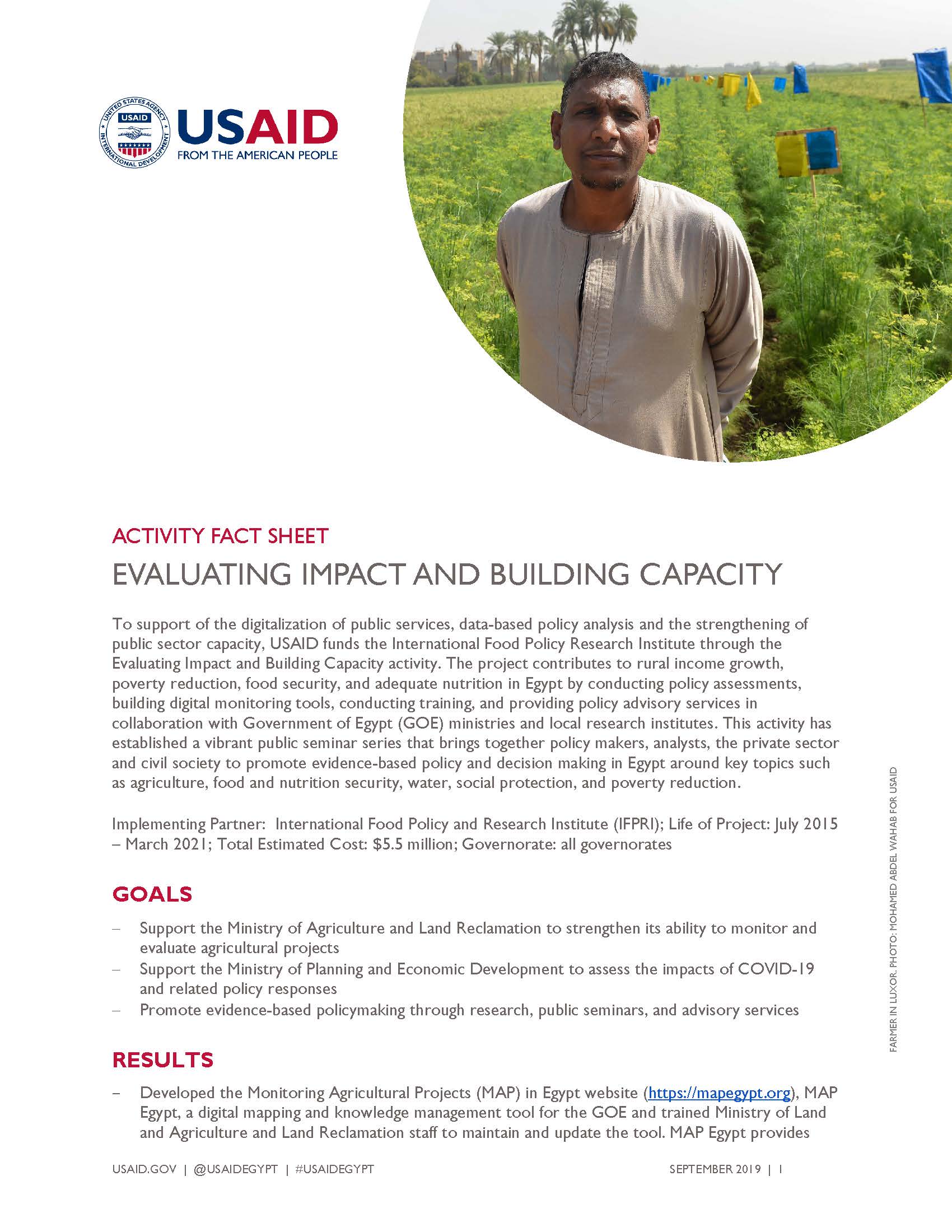Speeches Shim

To support of the digitalization of public services, data-based policy analysis and the strengthening of public sector capacity, USAID funds the International Food Policy Research Institute through the Evaluating Impact and Building Capacity activity. The project contributes to rural income growth, poverty reduction, food security, and adequate nutrition in Egypt by conducting policy assessments, building digital monitoring tools, conducting training, and providing policy advisory services in collaboration with Government of Egypt (GOE) ministries and local research institutes. This activity has established a vibrant public seminar series that brings together policy makers, analysts, the private sector and civil society to promote evidence-based policy and decision making in Egypt around key topics such as agriculture, food and nutrition security, water, social protection, and poverty reduction.
Implementing Partner: International Food Policy and Research Institute (IFPRI); Life of Project: July 2015 – March 2021; Total Estimated Cost: $5.5 million; Governorate: all governorates
GOALS
- Support the Ministry of Agriculture and Land Reclamation to strengthen its ability to monitor and evaluate agricultural projects
- Support the Ministry of Planning and Economic Development to assess the impacts of COVID-19 and related policy responses
- Promote evidence-based policymaking through research, public seminars, and advisory services
RESULTS
- Developed the Monitoring Agricultural Projects (MAP) in Egypt website (https://mapegypt.org), MAP Egypt, a digital mapping and knowledge management tool for the GOE and trained Ministry of Land and Agriculture and Land Reclamation staff to maintain and update the tool. MAP Egypt provides real-time access to agricultural, livestock, and food nutrition security data. This tool is used by the GOE, international organizations, and the interested public to better coordinate donor interventions and improve transparency.
- Developed a COVID-19 multiplier model and conducted related policy research, hosted a webinar, and provided training in collaboration with the Ministry of Planning and Economic Development and the Egyptian Center for Economic Studies that have been used by GOE to help estimate the Gross Domestic Product for the fourth quarter of the 2019/2020 fiscal year.
- Developed the Egypt COVID-19 food policy response monitor that tracks key changes in health responses, social protection, farm fiscal policies, and trade policies. The blogs, briefs, and policy monitor have attracted more than 38,000 views on the IFPRI and Ministry of Planning and Economic Development websites.
- Conducted 32 seminars that have brought together more than 2,000 national experts from the government, civil society, donor, and think tank communities, and attracted over 22,500 views of seminar proceedings online. The seminars are promoting a culture of evidence-based decision making and informing policy solutions to sustainably reduce poverty and end hunger and malnutrition in Egypt. Through the seminars, key government officials have agreed to strengthen evidence-based decision-making capabilities, analyze food and energy subsidies, and incorporate nutrition into key national programs.
- Published eight policy papers on agriculture-nutrition linkages, climate resilience, and fertilizer subsidies that have resulted in the lifting of energy subsidies, supported a cash transfer program, and a smartcard-based food subsidy system that gives beneficiaries more healthy choices.



Comment
Make a general inquiry or suggest an improvement.